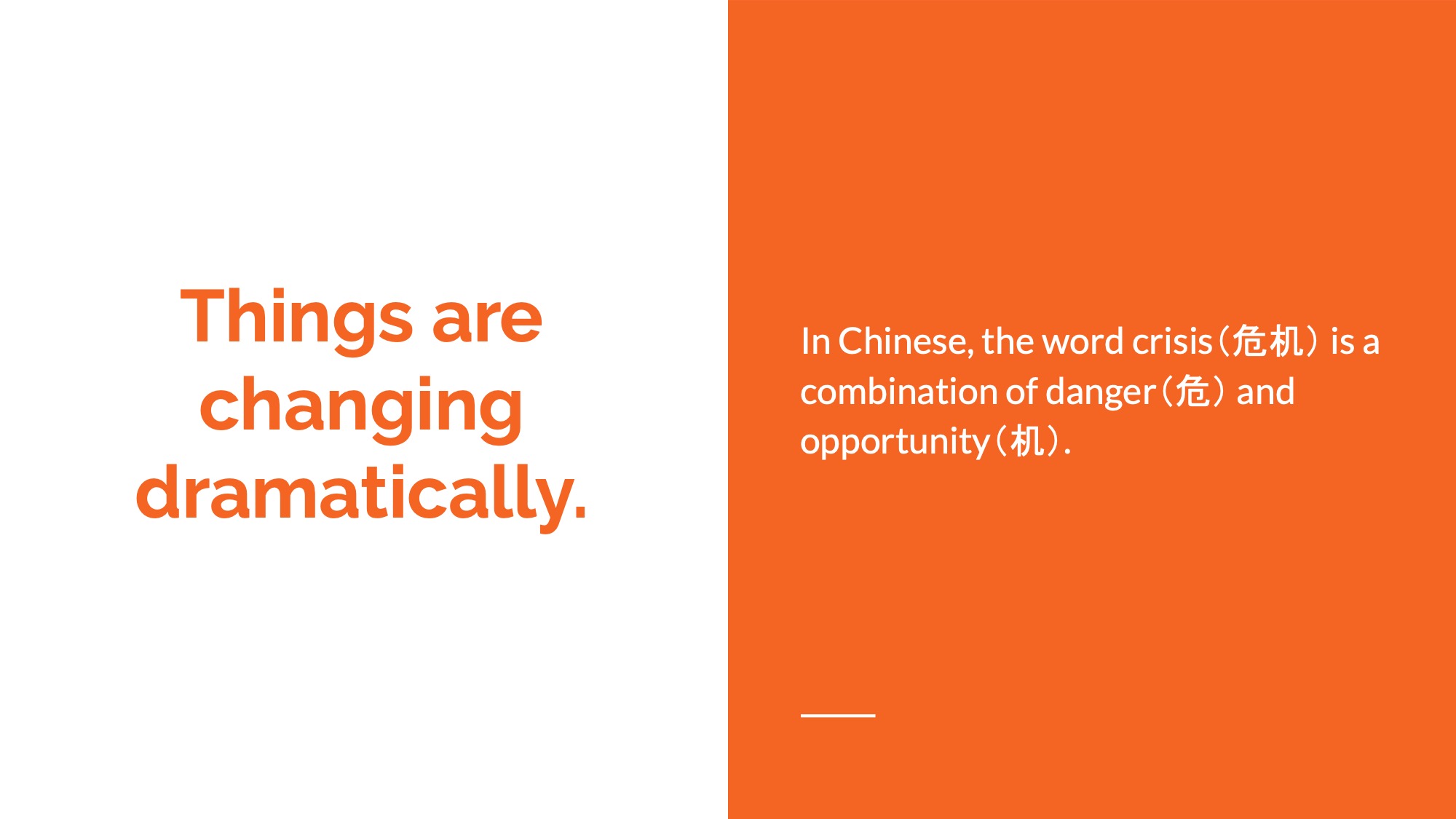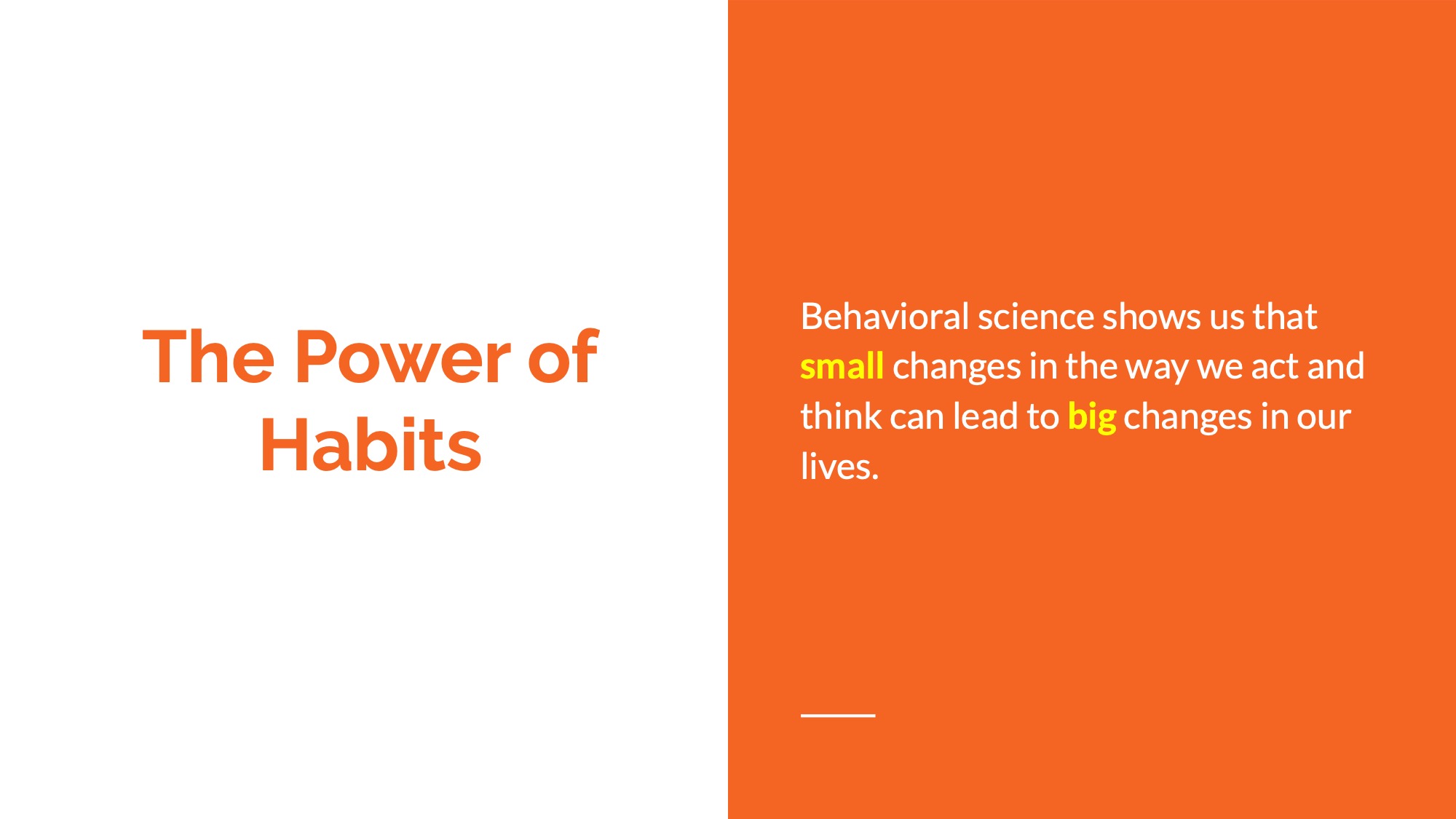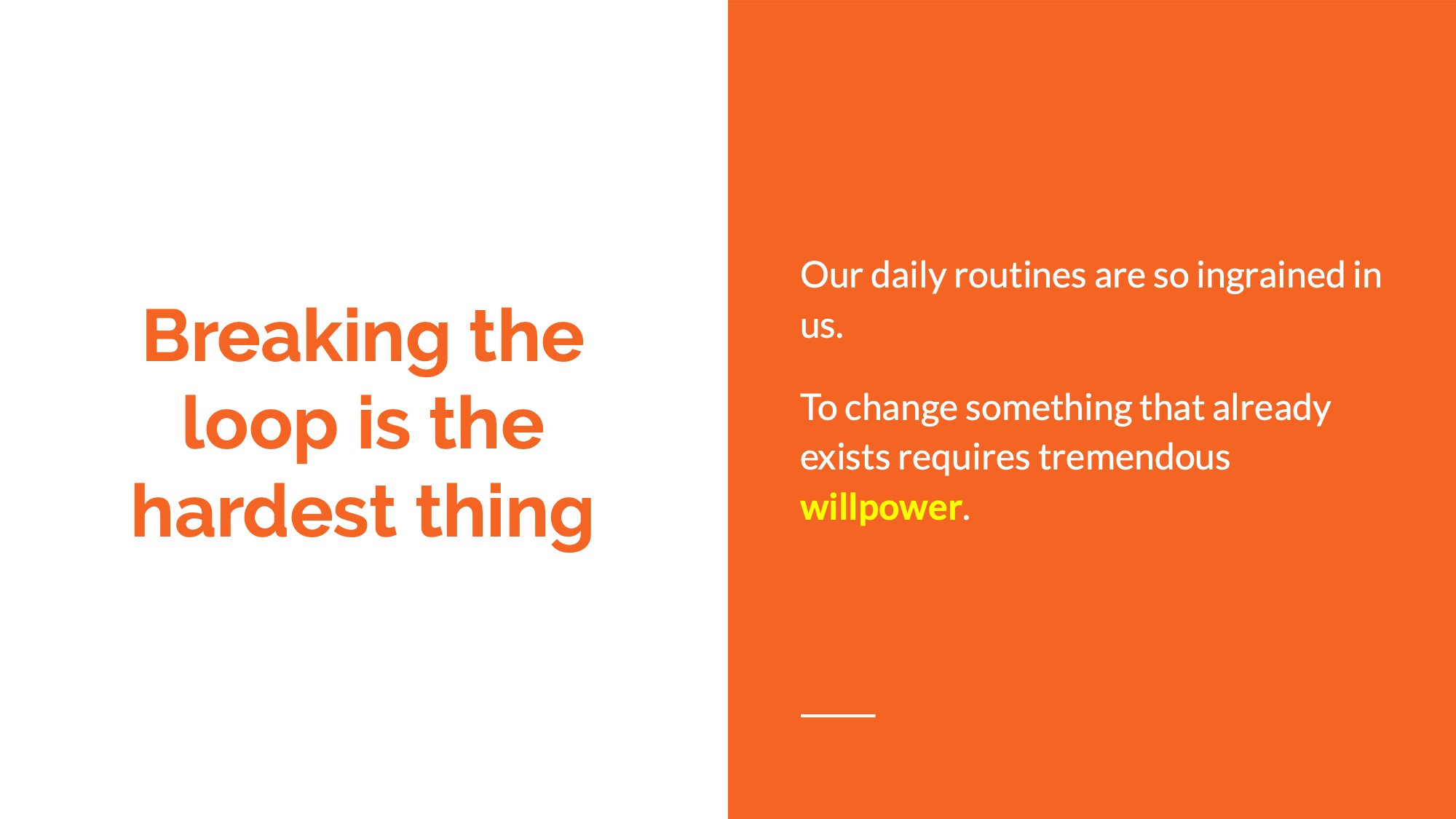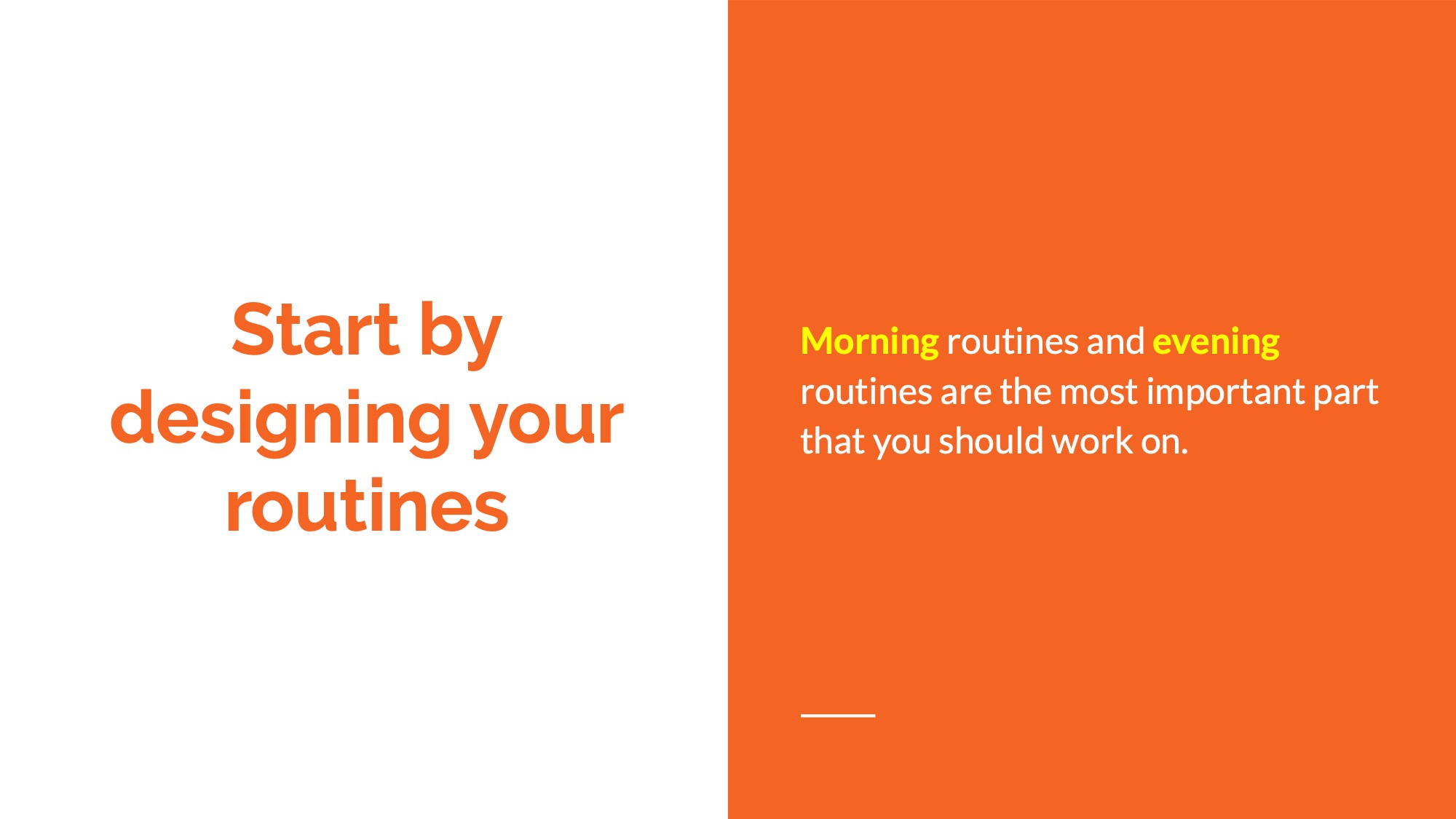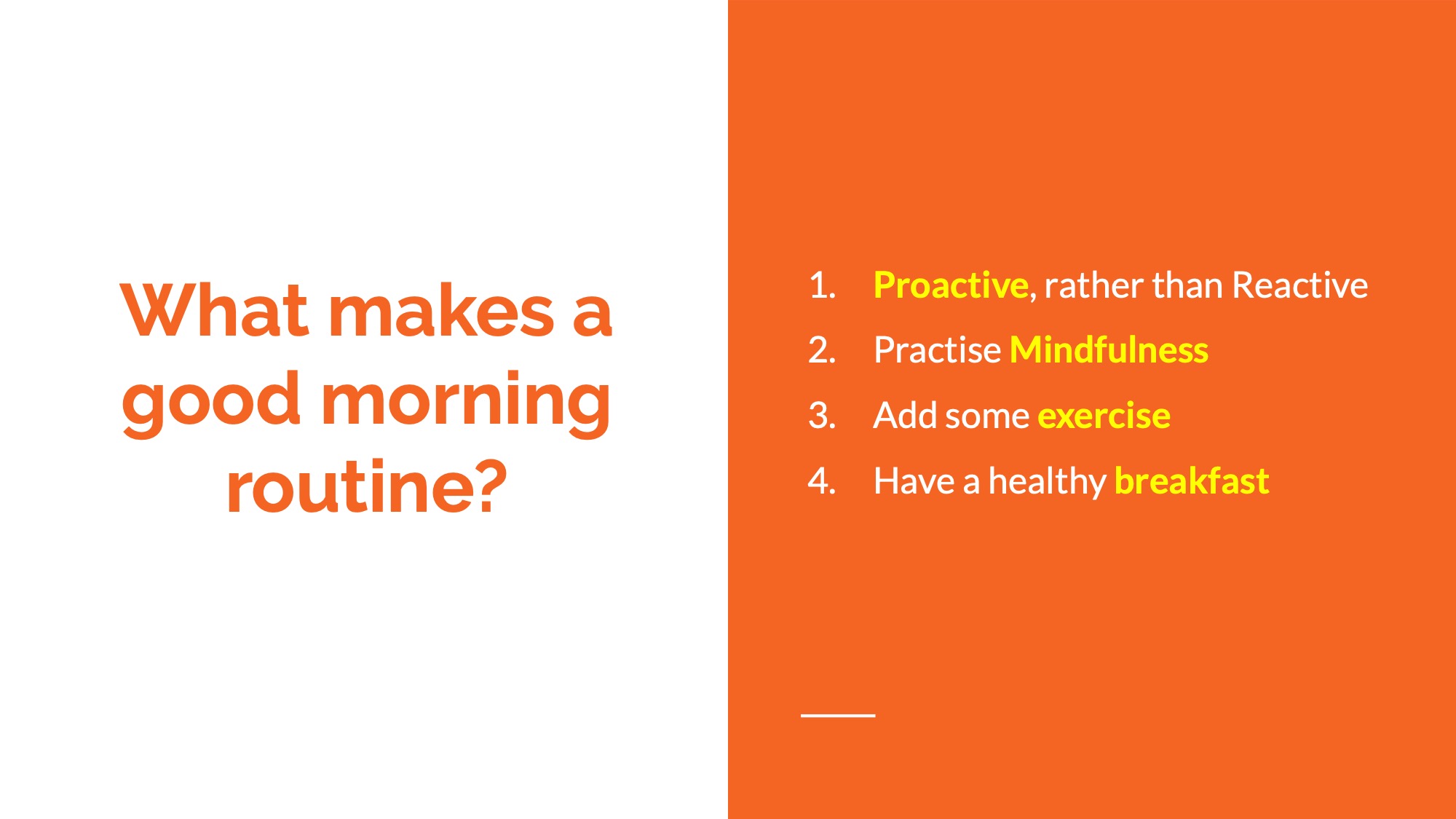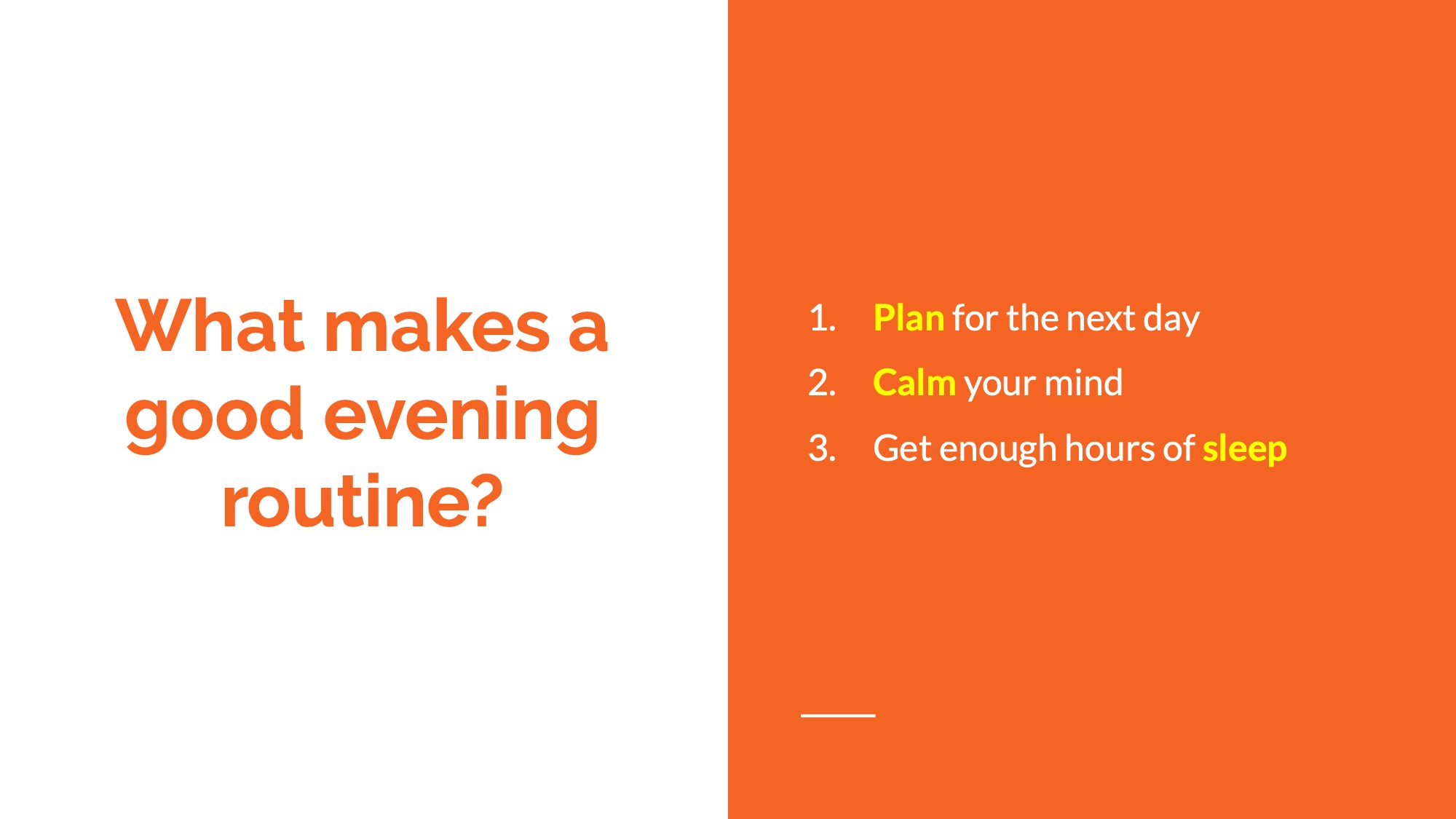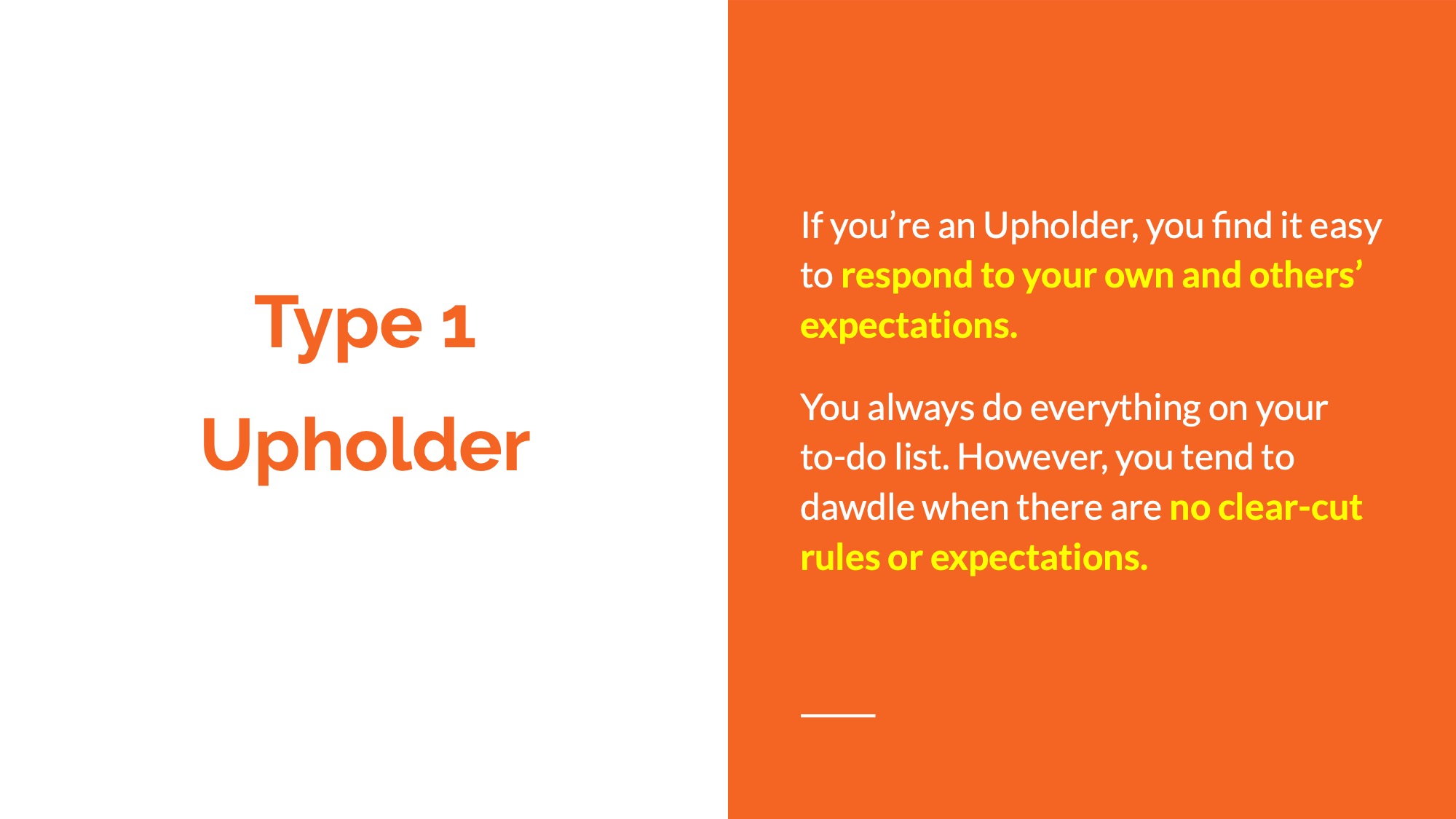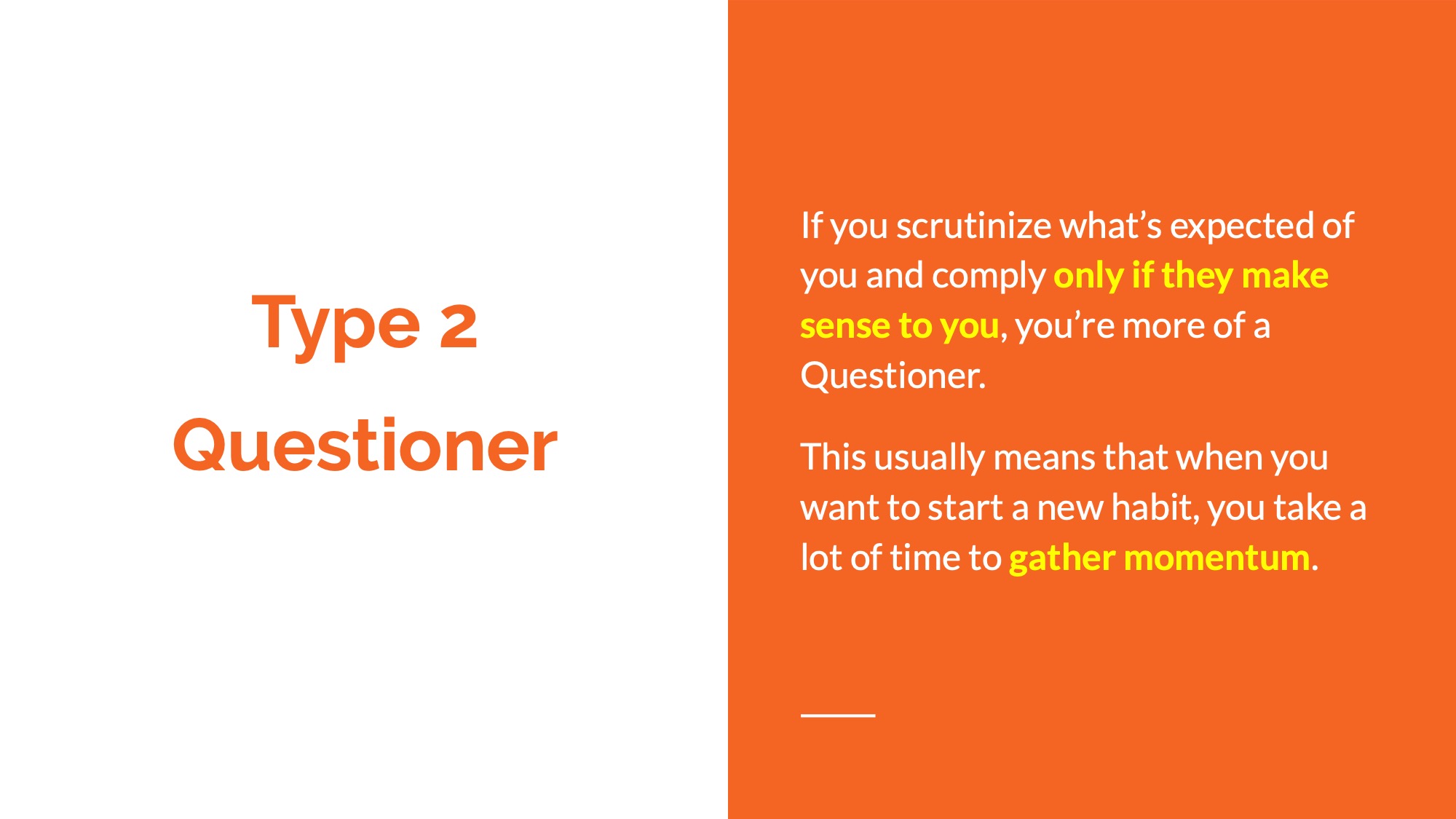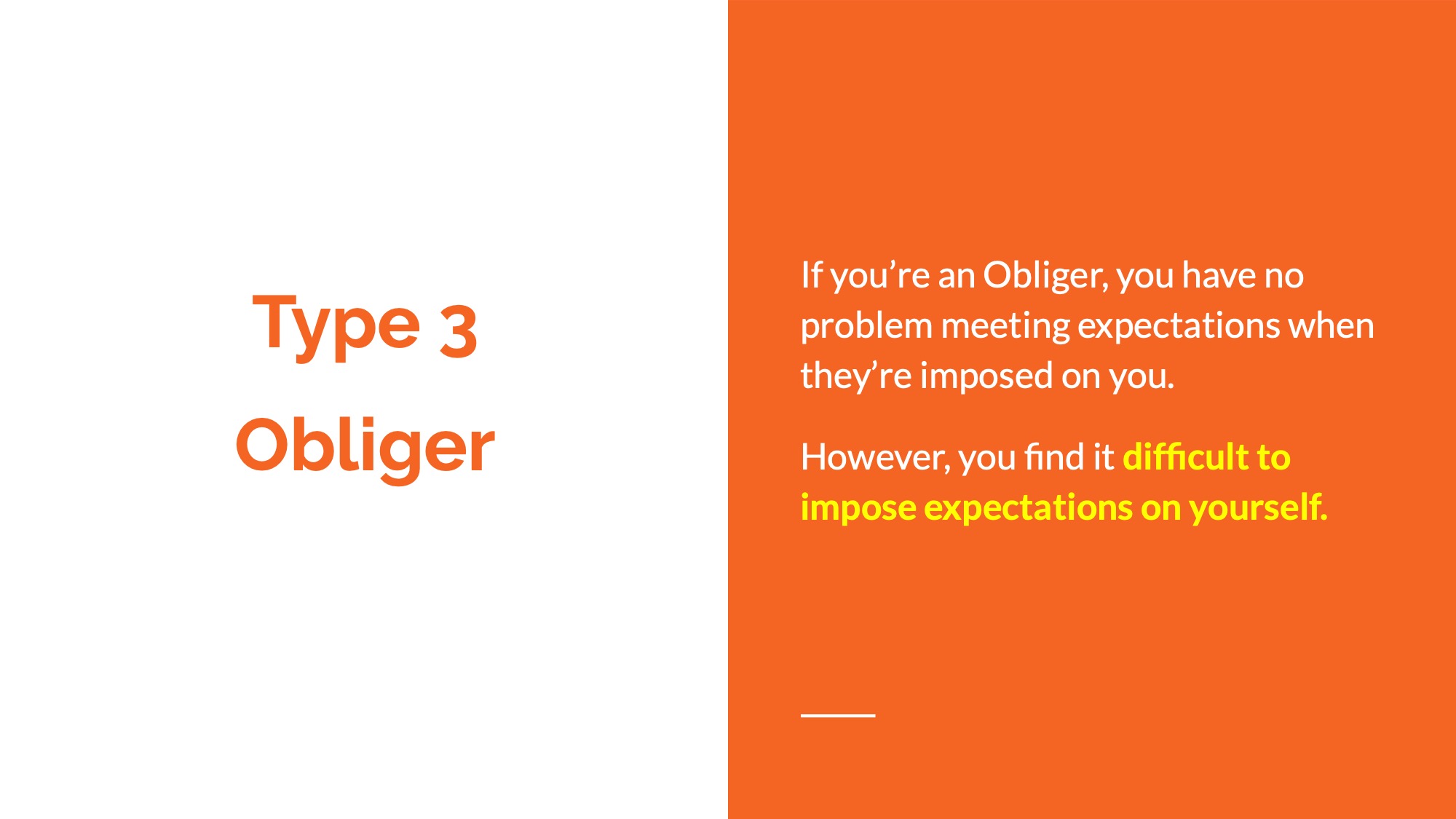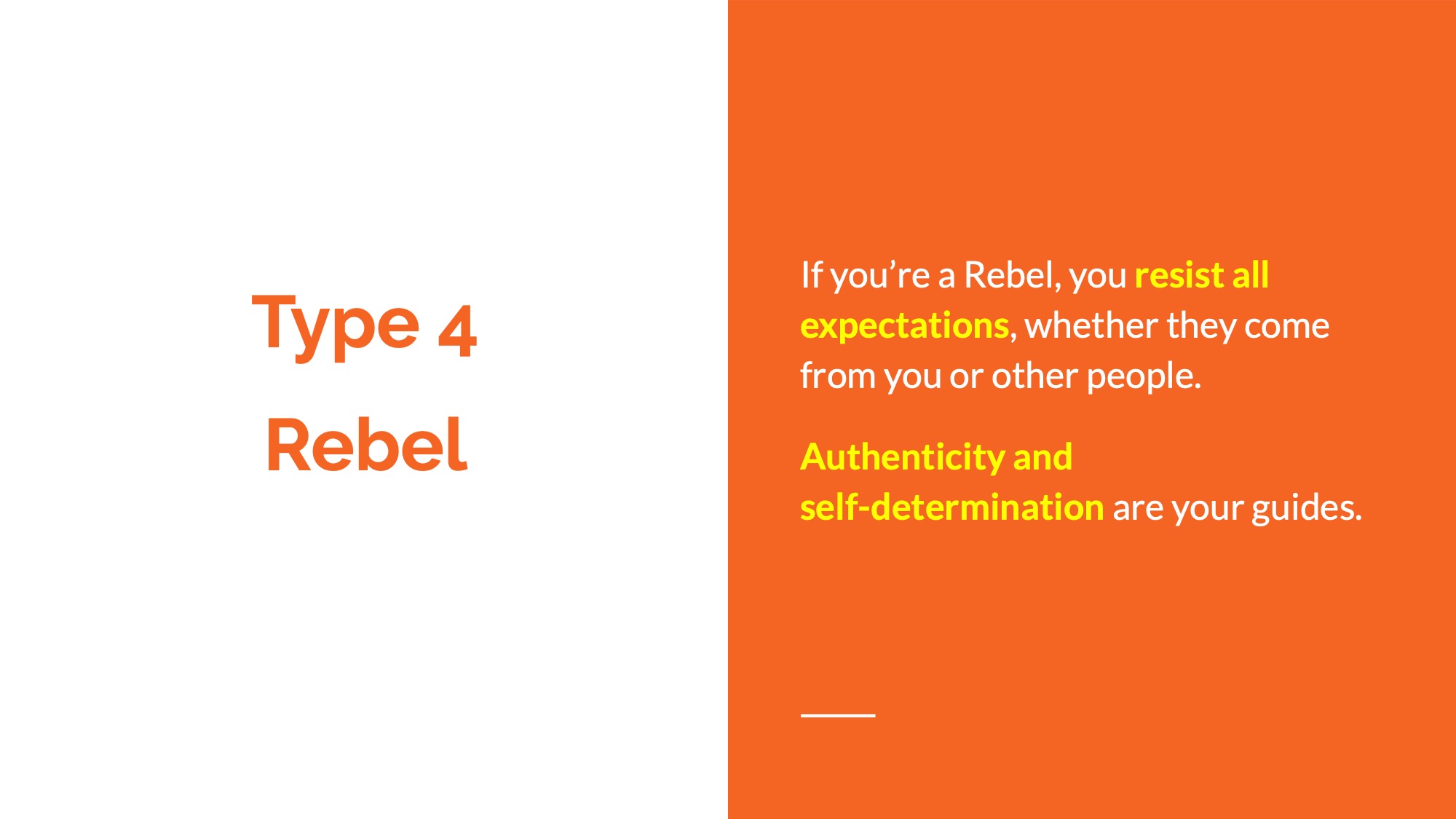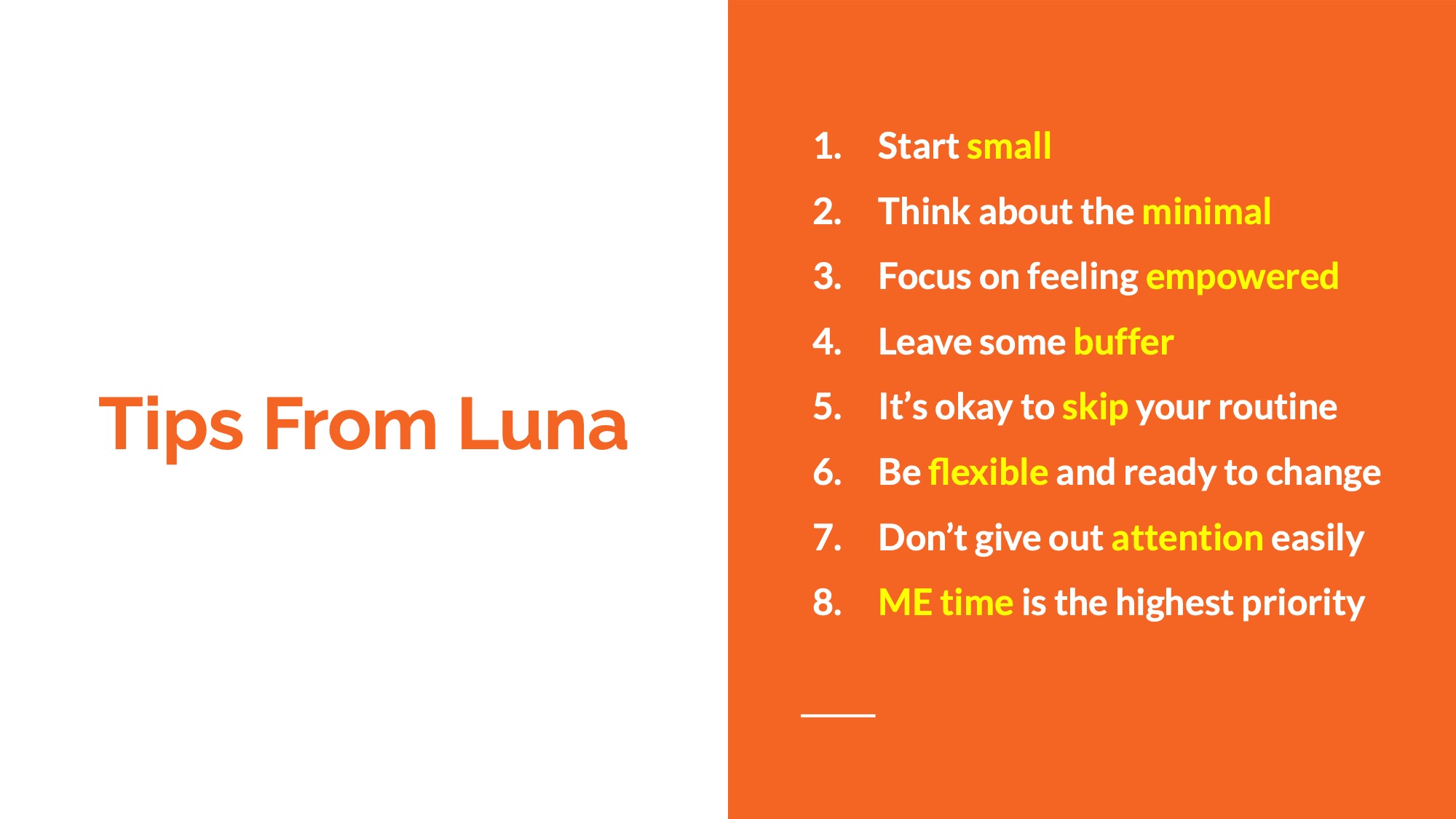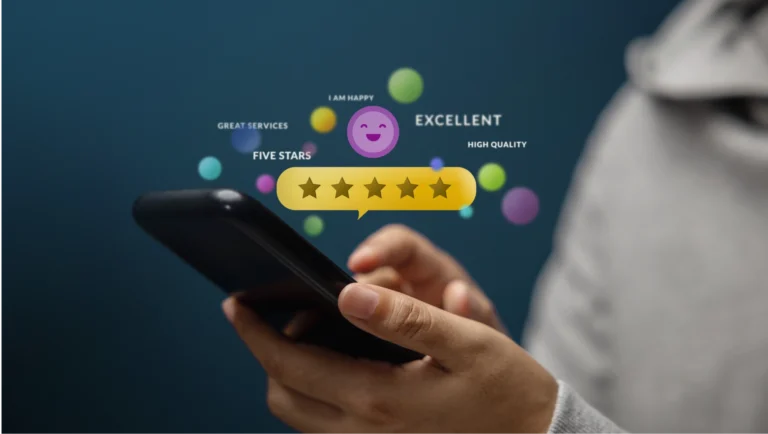I’m Luna Wen, a blogger, a mother and a junior software engineer currently working at Resonate Solutions. Three years ago, I came to Australia and completely changed my career from communications and journalism to information technology. I had never written a single line of code before this.
Changing a career and studying with a child is challenging. However, I also believe in human willpower, self-discipline and I’m always eager to learn and explore more of the world. So here I am, sharing with you my journey and experience around “Habits”.
This is something that I’ve put a lot of thoughts in the past two weeks because my life has changed dramatically in various ways:
- Embrace working from home
- Accept the restrictions of going out and gathering
- Start home cooking
- Getting used to the separation from my son
Everything I was used to doing in the last 8 months (after I moved to Sydney) has been changed. And I believe everyone is experiencing this challenging change in lifestyle at a different level.
This time provides an opportunity for us to reset and build new habits, on the individual level and within our teams. The lessons I’ve learned when adjusting to this lifestyle are beneficial for our teams as well as our personal lives through this time .
In a nutshell, this is what I want to share:
- It’s absolutely normal to feel emotional, upset, uncertain during the time of change.
- But it’s actually an opportunity for us to slow down, think deeply, reflect, form new habits and take more strategic actions to make long-term positive changes in our life and career.
- For organisations, it is a time for the teams to do things differently, take a step back and think about long-term objectives.
And that’s exactly how we can separate ourselves from the majority, gain competitive advantage and achieve more.
1. What are habits?
First of all, let’s take a look at the definition of “Habits“.
Habits are simple cue-routine-reward loops that save us effort.
There’re 3 components of each habit:
- Cue: a trigger to do something
- Routine: what you do
- Reward: what you get by doing what you do
For me, there’re two types of habits:
- Behavioural Habits: what you are used to doing
- Mental Habits: what your mind is used to thinking
Which type is more difficult to change?
I think it’s our mental habits. But these two types of habits are interconnected as well, your mental habits will shape your behavioural habits. We’ll learn more about this later.
Teams also have their habits. Team members may do things repeatedly in the same way because they are used to do that. And habits become team culture, which is a combination of assumptions, values, and how people do their work, how people tend to solve problems.
2. Why habits matter?
The second question is: why should we care about our habits? Does it really matter? Well, habits define how we interact with our inner mind as well as the outside world. Habits are your actions, your feelings, how you spend your time… It’s literally YOU!
A popular saying in the Chinese Communities is:
Your gene determines your appearance before 25, your habits determine your appearance after 25.
And we all know that people who like to smile generally look better than those who don’t. Look at this image and answer the question: Which face do you think is healthier?
Source: https://theconversation.com/secret-to-a-healthy-appearance-smiling-says-science-82520
Habits are extremely powerful.
Because habits are your brain’s shortcut to behave and feel in certain ways, it becomes our automatic behaviour. And if we can change our habits in a better direction, our life can be changed as well!
People who feel unhappy and miserable should really think about what they can do to change the situation, because if you are doing the same thing over and over again, you are going to get the same result, for sure!
Teams can suffer from bad habits even more than individuals, and sometimes these habits are costly if teams continue to do things in a wrong way or not thinking in a long-term perspective.
So let’s change our bad habits and inject some good ones in our life!
3. Why is it so difficult to change habits?
It all sounds very inspiring and motivating, right? But the reality is that… people just cannot change their habits as easily as they would like to.
Why is it so difficult to change our habits?? Remember the 3 components of any habit? Cue, Routine, Reward.
This loop is so ingrained in our daily life so that our brain and muscles just want to do the automated action instead of trying something new. Yes, breaking the loop is the hardest thing if we want to change our habits, because it requires tremendous willpower.
In 2011, 27 percent of Stress in America survey respondents reported that a lack of willpower was the most significant barrier to change.
Willpower is the ability to resist short-term temptations to meet long-term goals, it is our ability to control ourselves. We’re not going to go deep into the topic of willpower today, because now we have an external trigger to help us embrace new changes.
Now is a perfect time to change
The best timing for introducing new habits is when a major change occurs in our life which makes our routines suddenly change, or even disappear altogether.
We may not have enough willpower to start the change process, but the cues of our habits are changing now. Now that we are forced to do things differently because of COVID-19, it actually opens a perfect time window for us to take the step and reconstruct our habits.
If your team has tried a thousand times to build some new habits but inevitably failed, now is the time to do it right.
4. How to change habits?
You might want to ask, how do we change our habits? If I’ve tried a thousand times and it has never worked, how do I know this time it’s going to work?
According to Charles Duhigg, the writer of The Power of Habit, we can change our habits by doing the following:
- Identify the routine
- Experiment with rewards
- Isolate the cue
- Have a plan
If you want to know more details about the expert’s advice, you can go to this link (https://charlesduhigg.com/how-habits-work/) and maybe read his book.
But I’m going to give my advice to answer the question of “How”.
a. Get interested in yourself and in your team
The first thing I find extremely important is to be curious about yourself. Spend some time to observe yourself and ask questions like: Why do I act like this? Why do I feel like this? You might think it sounds ridiculous, but it’s very useful, because if you don’t know how your mind works, how are you going to find the most effective way of persuading yourself to new change?
While observing yourself, try to find things that make you feel happy and empowered. For example, I find every time I do yoga or go to the gym, I feel energized and empowered.
Also, identify the bad habits that you always want to ditch. For instance, I always feel bad after eating fast food and taking in too many calories.
Find out what you want to change in your current life.
Tips for teams: Observing your team’s daily behaviour would be the best way to start.
b. Start by designing your routines
Morning routines and evening routines are the most important part that you should work on. Because if you start a day feeling empowered and with a clear mind, you are more likely to respond to the challenges and pressures better.
And evening routines are important for unwiring yourself from a busy day and fully relax your body and mind.
Tips for teams: How does your team usually start a new working day? Do people greet each other? Do they smile at each other and exchange thoughts? Think about how your team can build a better start routine and end routine.
c. What makes a good morning routine?
There’re four elements of a good morning routine:
- Proactive, rather than Reactive
- Practise Mindfulness
- Add some exercise
- Have a healthy breakfast
Being proactive means you should do things that you want to do, not because you need to do it. If the first thing you do in the morning is checking email and respond to them, this is reactive, not proactive. A proactive routine should be something you want to do, not the world is expecting you to do.
Morning time is the best time to focus on your mind, empower yourself, clear your thoughts and get ready for conquering the world. Therefore, you should really give yourself a little ME time before jumping into work and everyday responsibilities.
The importance of meditation as a morning routine has been recognised in a lot of books, if you have a busy morning, even 2-minutes meditation can be very helpful.
If you don’t like meditation, you can practice mindfulness by simply focusing on your current task and be mindful of your surroundings, you can try it even during making breakfast. Mindfulness practice helps to add some calmness to your mind and let you find your priority and focus for the day.
Morning exercise can set you up for a healthy, happy and productive day. If you don’t want to spend too much time exercising, simply do a few stretches can make a big difference.
Last but not least, eat healthy food.
Tips for teams: A stand-up meeting would help the team members to think about their priorities and share impediments.
d. What makes a good evening routine?
The aim of the evening routine is about unwiring yourself and relax, so the essential things to bear in mind are:
- Plan for the next day
- Calm your mind
- Get enough hours of sleep
Many people find turning off their phones (or set to “Do not Disturb” mode) before bedtime helps the mind to relax faster.
You can also do meditation and write a reflective diary if you want, it’s a good way to wrap up a day.
And make sure you get enough hours of sleep, average sleep hours for adults are 7 to 9 hours.
For me, I find that I need at least 7 hours of sleep, ideally 8 hours, and it really makes me feel terrible if I wake up with only 5 or 6 hours of sleep.
Therefore, I suggest to observe your sleep needs and fit that into your daily routine.
Tips for teams: The perfect way of wrapping up a busy workday would be making sure everyone is feeling good and empowered, a 20-minute team game can be really helpful to bring up some laugh. Friday drink (virtually) is also a great team habit to adopt.
5. The Four Tendencies
We’ve mentioned mental habits at the beginning, and I found an interesting framework of categorising your mind tendencies, which answers a common question of “How do I get people – including myself – to do what I want?”.
To change our habits, it can be helpful to know our tendency type. Let’s take a look at the four types, and what you should do if you want to develop a new habit, say: go to the gym. Or in a team’s perspective, they need to develop a habit of proactively communicating with their customers.
Type 1: Upholder
If you’re an Upholder, you find it easy to respond to your own and others’ expectations.
You always do everything on your to-do list. However, you tend to dawdle when there are no clear-cut rules or expectations.
Basically, Upholders are motivated by their own schedule.
Key: come up with a plan, because you will stick to it.
Example: If going to the gym is in the calendar, an Upholder will go even if the weather is terrible, or she’s tired from work. If it’s not in the calendar, though, she’d probably skip it even if it would be a fine day to work out.
If an upholder team has put “customer conversation” on their calendar, they will do it as scheduled.
Type 2: Questioner
If you scrutinise what’s expected of you and comply only if they make sense to you, you’re more of a Questioner.
This usually means that when you want to start a new habit, you take a lot of time to gather momentum.
In short, Questioners are motivated by facts and proof.
Key: gather your momentum within a short time. It’s no harm to experiment, just try for once or twice, see if you like it.
Example: A Questioner wanting to start a gym habit can benefit from exercise apps or other data sources, because when he sees statistical proof that he’s losing weight, he’ll be more motivated to stick to his gym routine.
A Questioner team will spend a lot of time arguing the “Why”, why we need to understand our customers? Do we really need to know what they are thinking? Do we really need to talk to them? We know them already, why put the effort of asking? But once the team has seen that statistic shows improving customer experience and the drive of their behaviour can significantly improve ROI, they will determine to do it.
Type 3: Obliger
If you’re an Obliger, you have no problem meeting expectations when they’re imposed on you.
However, you find it difficult to impose expectations on yourself.
Obligers are motivated by others.
Key: get someone who already has the habit you want to develop to motive you.
Example: If you as an Obliger want to go to the gym more, you should get an exercise buddy who’ll pressure you into going.
An Obliger team will only start their conversation with customers when a company has shown them how to properly do it and guide them through this journey.
Type 4: Rebel
If you’re a Rebel, you resist all expectations, whether they come from you or other people.
Authenticity and self-determination are your guides.
Interestingly, Rebels are motivated by their own authenticity and self-determination.
Key: work on your willpower.
Example: If you’re a Rebel you should refrain from putting things in your calendar (if you have one at all) and just say to yourself you’re going to the gym today because you want to, not because it’s in the calendar.
A team labeled Rebel will only start the conversation with their customer when they decide to do it and genuinely believe they should do it.
What about you?
Can you find yourself or your team in one of the four categories?
6. How to design routines practically?
Lastly, I want to talk about how to build practical routines, because, at the end of the day, even you have a perfect morning and evening routine plan, you might not be able to stick with it for a long time.
A plan that cannot be executed is a failed plan.
Here I want to share 8 tips from my experience with you:
a. Start small
If you want to start meditation in your morning routine, don’t aim for 20 minutes in the beginning, just aim for 2 minutes. Breaking your big goal into actionable small pieces and give yourself some time to adapt to new habits.
b. Think about the minimal
When I plan for my routine, I always think for the best case and worst case, which means, my morning routine can be as long as 2 hours, or as short as 30 minutes. And I always start with the minimal things I need to do to make myself feel good.
For example, my minimal routine is, listen to a podcast while washing, do several stretches and make myself a coffee. Think about the minimal really helps me to get rid of the guilty feeling when I cannot stick with your plan.
c. Focus on feeling empowered
You might have tried several routines that work for other people, but not for you. If so, move on to find something else that makes you feel empowered. Always remember that the aim of building routines and habits is to make YOU feel good enough to start a new day and conquer the world.
d. Leave some buffer
When designing our routines, don’t think too much about making use of every minute. What you should really do is to leave some buffer to your schedule, and you will find it’s much easier to follow.
e. It’s okay to skip your routine
Well, what if you have missed one or two days for your routine? It’s nothing! Don’t put too much pressure on you!
What you should think about is the “WHY”, why did I miss this day, is it just a one-time thing or it’s going to be affecting me for a long time. If it’s long-term, change your plan to adapt to it would be the answer.
f. Be flexible and ready to change
Continue with the 5th tip, there’s no perfect routine, there’s only a good routine that fits into your current life. So, please have an open mind and be ready to change your plan for unexpected things, like COVID-19.
g. Don’t give out attention easily
If there’s something more important than our time, that is our attention. Stop giving out your attention without consciousness, such as spending 2 hours on social media to follow COVID-19 news.
General guidance would be: Use your attention to do things that align with your long-term goal and can make you feel happy.
h. ME time or Team retrospective is the highest priority
No matter how busy your day looks like, it’s crucial to spend some time with just yourself. If you can’t find any time, you can even use toilet time to take a break and do some deep breaths.
ME time is used to relax your mind and listen to your own voice, find your true passion and motivation to guide you through your life.
And Team retrospective is an essential component for a team to think about its strength, weakness and long-term objectives.
7. Questions for you
I hope you enjoyed this topic, and now it’s your turn to answer some questions.
- You/your team’s type of personality ( Upholder, Questioner, Obliger, Rebel )
- One good habit you/your team has
- One bad habit you/your team wants to ditch
- One new habit you/your team wants to build
8. Resources
Take a quiz to check your tendency type
Learn more about how habits work
You might want to read this article about willpower
How to write a reflective diary
9. Wrap up
Thanks for reading my post about how to reconstruct your habits in this special but perfect time! Ideally, now you are motivated to embrace the current lifestyle and work style changes.
You are also willing to think about what you want to achieve, how you want to change your habits, how your morning routine and evening routine would look like. And finally, you are going to take action to change your routine, and achieve your goal.
For teams that are eager to grow, think about how members can start and end their working day in good spirit and clear focus. This would be a perfect time to work on team routines and observe your team habits.
